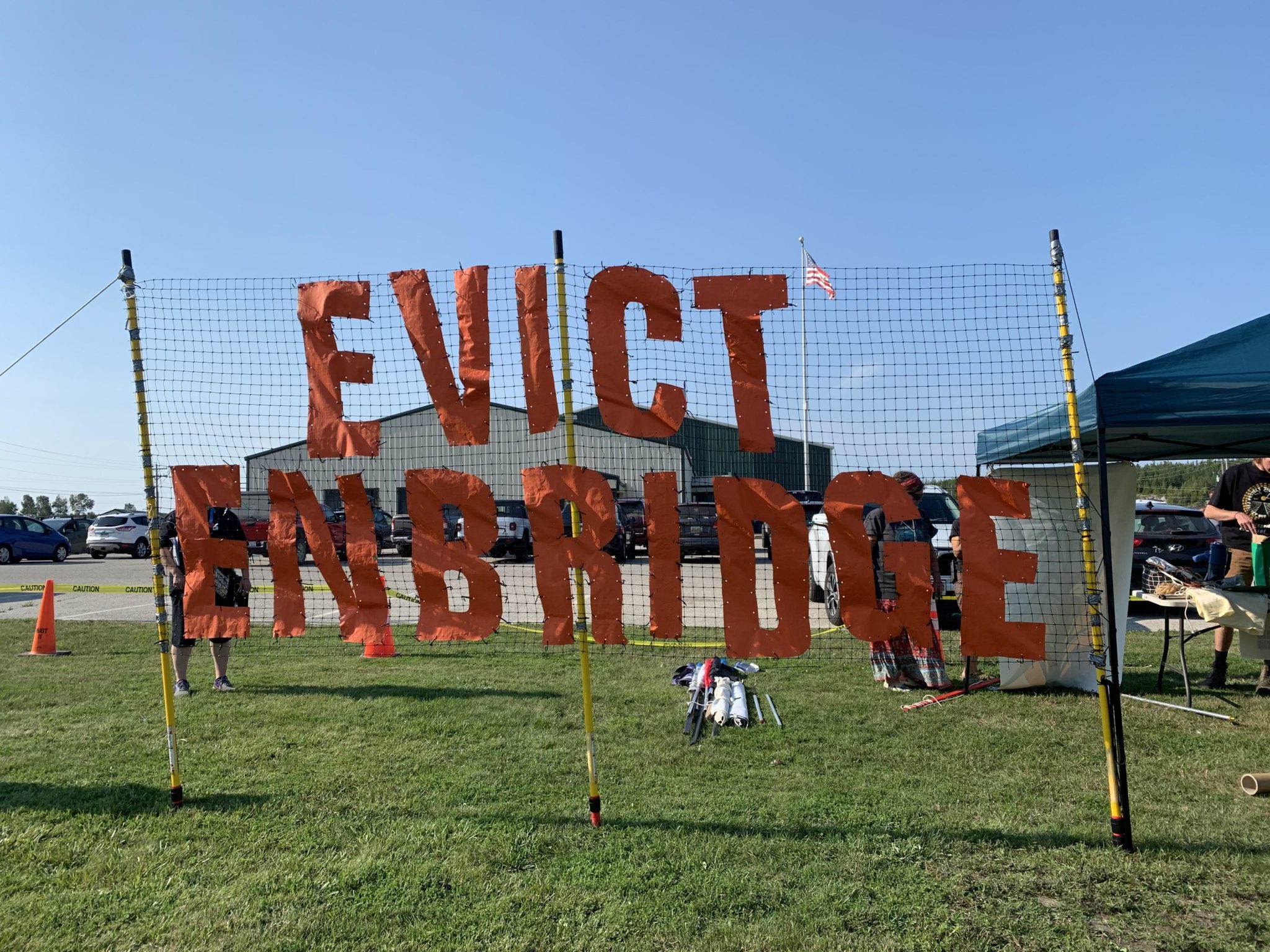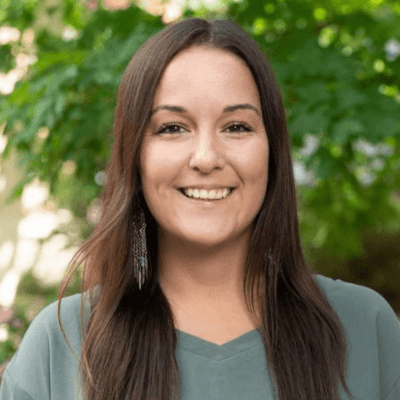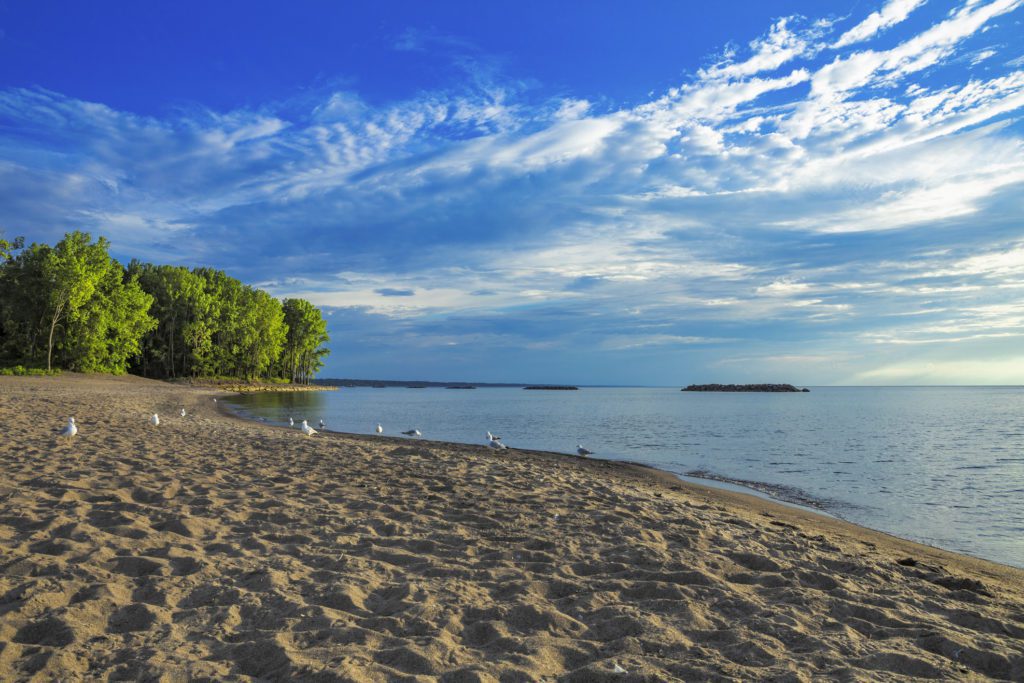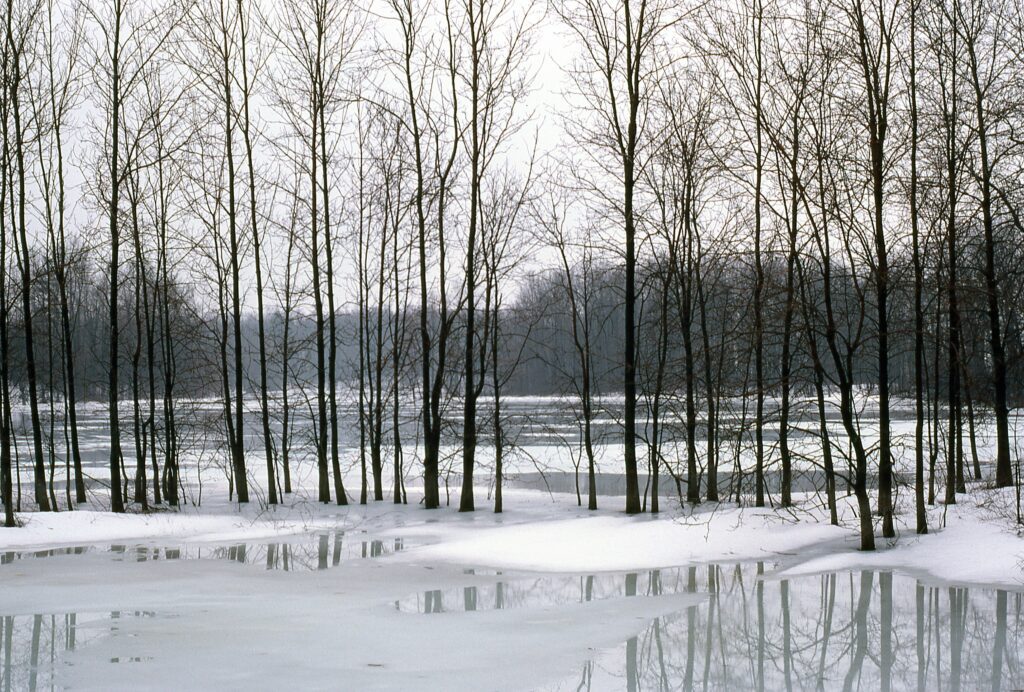Funding police to suppress water and land defence efforts, breaching natural aquifers that supply wetlands with groundwater, and circumventing Indigenous People’s tribal rights: some of the many ways Enbridge is working to “develop mutually beneficial relations with Indigenous communities.”
Enbridge, like many other fossil fuel companies, has well funded PR teams that expertly craft marketing campaigns to give the appearance that the company is willing to work alongside Indigenous communities and act as partners in good faith. But it is just PR.
When it comes to Line 5, Enbridge has not been working amicably with Tribes in Michigan and Wisconsin. Enbridge is involved in separate battles with Tribes across Michigan, as well as with the Bad River Band Tribe in Wisconsin. In all cases, Enbridge is working to circumvent tribal rights within the U.S. legal system.
This blog focuses on the Line 5 case happening between Bad River Band and Enbridge. Our next blog will focus on Line 5 and the Tribes within Michigan who are also fighting to have Line 5 removed from their territories and shut down.
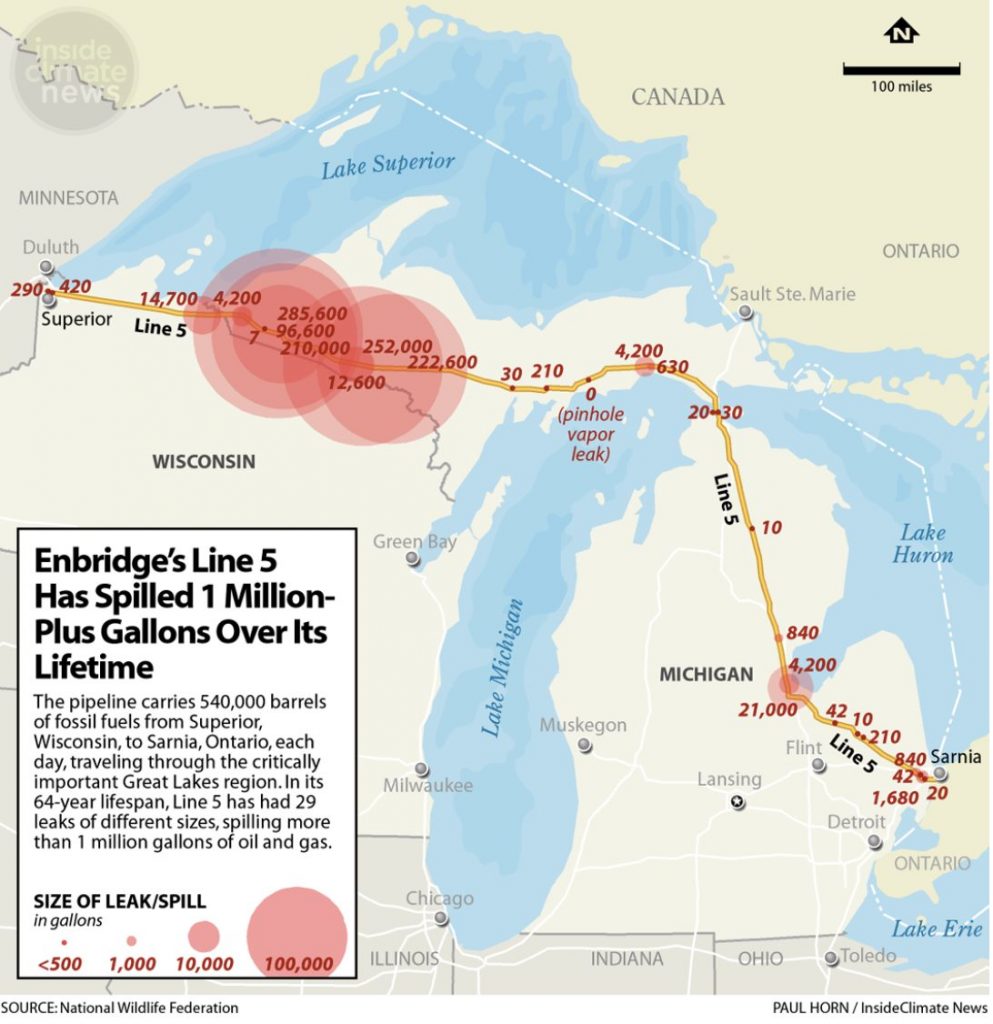
Myths about the Bad River Band v. Enbridge case:
Myth: Bad River Band was not within their sovereign power to control their territory when the Tribe voted not to renew Enbridge’s easement. Bad River Band does not have the right to evict Enbridge and remove Line 5 from their territory.
Reality: Between 1994 and 2013, the U.S. Bureau of Indian Affairs (BIA) assisted the Bad River Band in acquiring ownership interests in 12 allotment parcels of land in the Line 5 corridor. The BIA issued 20-year easements in 1993 that allowed Enbridge to operate Line 5 through these 12 allotment parcels. In 2017, Bad River Band voted not to renew Enbridge’s easement on the 12 parcels due to multiple historical events and ongoing safety concerns about the aged pipeline’s threat to the Bad River’s watershed and Lake Superior. In October 2019, the Tribal Council passed another resolution reiterating their 2017 decision. Although the easements expired in 2013, Enbridge has refused to remove the pipeline from these 12 parcels and has been found guilty of trespassing by the Wisconsin court.
Bad River Band filed a motion earlier this year seeking a summary judgement to shut down Line 5 without a trial. Enbridge filed its own such motion in May. In September of this year, the Wisconsin judge confirmed Bad River Band’s sovereign power to control its territory. The judge ruled in favour of Bad River Band and found that Enbridge is trespassing and the Tribe is entitled to financial compensation, but stopped short of ordering an immediate shutdown. Enbridge owes Bad River Band 10 years worth of illegal profits and ongoing pay for every year the pipeline remains in operation on the Tribe’s land. The court will seek input from the parties before deciding the terms of a permanent injunction.
The trial will begin on Oct. 24th and there are still several questions surrounding what alternatives can be turned to – will it be 65 kms of a new pipeline reroute or will other alternative infrastructure be turned to to ensure the required product makes it to market? The judge has ordered that fines will increase if Enbridge does not comply with the removal of the pipeline within a certain amount of time, but did not provide details on timing.
Beyond this specific case, in terms of Tribal rights and Tribal sovereignty, Michigan and Wisconsin Tribal Nations signed treaties with the U.S. government in 1836, 1837, 1842 and 1854. These treaties retain the Tribes’ rights to be able to hunt, fish and gather in their traditional territories. Line 5 is a direct threat to these rights and the ecosystems that sustain them.
Myth: Enbridge works harmoniously with Indigenous nations, such as the Bad River Band of the Lake Superior of Chippewas.
Reality: Enbridge is currently working to circumvent Bad River Band’s tribal rights within the U.S. legal system. The Tribe is ordering Enbridge to remove Line 5 from their sovereign territory. Enbridge is trying to contest the Tribe’s sovereignty.
The company’s back-up plan is to reroute 65 kms of pipeline through a different part of the Bad River watershed, but around the Tribe’s territory. This still goes against what the Tribe is ultimately fighting for – to remove the threat of Line 5 from the entire Bad River watershed.
Bad River Band is also advocating to have the pipeline shut down and has pointed to available alternatives that do not include 65 kms of new pipeline. The Tribe has multiple analyses that have confirmed there are options for meeting our energy needs without Line 5. These analyses substantiate the findings from Environmental Defence’s analysis of the economic impacts of shutting down Line 5.
Myth: Line 5 is not a threat to the Bad River watershed or Lake Superior.
Reality: The Tribe has documented multiple historical issues with Line 5 and has indicated that the 70-year-old pipeline poses a serious threat to the Bad River’s watershed and Lake Superior.
Mashkii-ziibi (medicine swamp river), often called the Bad River, is designated as an Outstanding Tribal Resource Water by the U.S. Environmental Protection Agency and holds significant cultural importance to the Bad River Band.
Healthy, ecologically intact rivers, like the Bad River, meander and change naturally over time. Twenty-five kilometres upstream of Lake Superior, where Line 5 crosses the Bad River, the river is working to carve a new channel through the neck of the winding and bending river. This is a naturally occurring process that is important for the ecological integrity of a river, and the resulting oxbow lakes are seen throughout the Bad River floodplain.
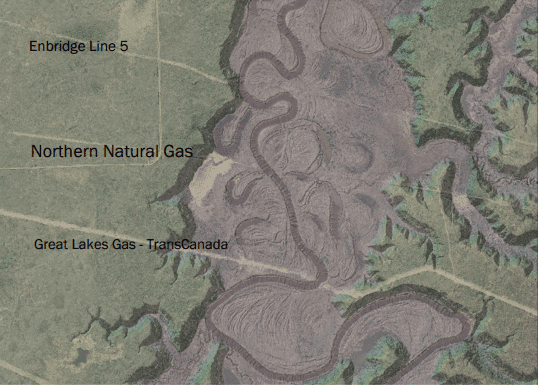
Line 5 cuts through the river at the meander neck, where natural erosion occurs, putting the health of the river, wildlife, Bad River Sloughs, Bad River community, and Lake Superior at extreme risk of an oil spill if Line 5 is exposed to these natural processes. Additionally, impacts of climate change in the region can exacerbate and accelerate erosion rates.
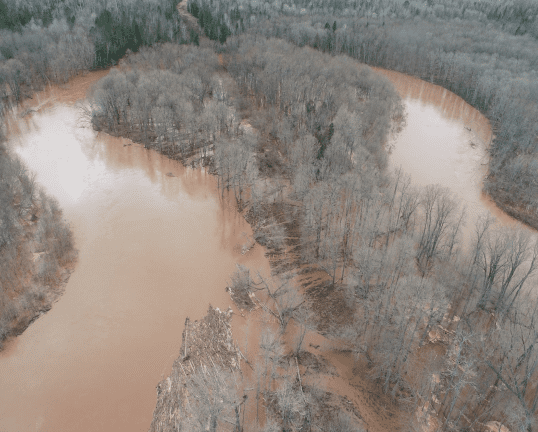
In August 2019, Bad River Band’s Mashkiiziibii Natural Resources Department staff discovered a forty-nine foot section of Line 5 pipeline was exposed due to erosion of an intermittent tributary/wetland flowing down a steep slope. Of the exposed pipe, forty feet were unsupported due to erosion. The exposure site is just uphill from Denomie Creek Tributary, which eventually flows into the Bad River Swamps and Lake Superior.

were temporarily installed under the free-spanning pipeline. Source: Mashkiiziibii Natural Resources Department – http://www.badriver-nsn.gov/wp-content/uploads/2020/02/202002_NRD_EnbridgeLine5_Brochure.pdf
Myth: Enbridge is acting in good faith with leaders and community members of Bad River Band.
Wiggins told Indian Country Today, “The only thing we have ever asked of the oil company is to get out of our watershed. And that has been rejected, that has been disrespected and essentially ignored.” Wiggins also said, “Enbridge is suing us because we want them out of our watershed.”
Wiggins believes Enbridge is employing a strategy to divide the community through short-term jobs and payouts for projects. “This is a typical page out of their playbook, throwing money around in order to buy their way through,” he said.
Aurora Conley, a community member of Bad River Band told Indian Country Today, “Sure, the tribe can use the money. There are so many challenges here and we don’t have the capacity to address them. Enbridge is dividing the community and pushing people to go against their values for the simple price of providing for their families.”
Enbridge has employed similar tactics during its Line 3 construction project in Minnesota. In 2018, the Fond du Lac Band of Ojibwe made the difficult decision to allow Enbridge to replace its pipeline through reservation land rather than pursuing a new route that potentially endangered a larger area of ceded territory. As part of the agreement, Enbridge paid the tribe an undisclosed sum and tribal leaders agreed not to publicly oppose the project.
Tribes have also complained about how Enbridge has proceeded with the process to get a proposed reroute project approved to keep Line 5 open. It was noted by the River Alliance of Wisconsin that tribal members who spoke at the Wisconsin Department of Natural Resources Draft Line 5 Environmental Impact Statement Public Hearing expressed that they feel they were not properly consulted. They also expressed a shared belief that Enbridge did not make any real effort to rectify this lack of consultation, even after tribal representatives shared the concern with them.
Myth: Enbridge can be trusted to prioritize protecting the Bad River watershed, Lake Superior, and the Great Lakes at large.
Reality: Enbridge is motivated by profits and has a horrible track record with oil spills. Bad River Band is motivated by the continued health of the Bad River, Lake Superior and the Great Lakes for seven generations to come.
Enbridge was responsible for one of the North America’s largest inland oil spills that occurred right in the Great Lakes basin in July 2010 and contaminated nearly 64 kilometres of the Kalamazoo River in Michigan, costing more than $1.2 billion to clean up. Michigan Tribes’ community members have stated that they still have not seen culturally important crops, such as wild rice and other medicines, returning to the impacted watershed. This represents a significant cultural loss for the Anishinaabeg of the area.

Myth: Canada cares about reconciliation with Indigneous peoples and addressing the harms of colonialism, such as those related to extractive resource projects.
Reality: In the recent Bad River Band v. Enbridge case, Canada has attempted to intervene and circumvent Tribal rights within the U.S. legal system. Canada is working alongside Enbridge to attempt to delay a verdict that could be in favour of Bad River Band. Together, Canada and Enbridge are attempting to move the case from state court to federal court by invoking a 1977 pipeline treaty that concerns transit oil pipelines that move between both countries. Enbridge and Canada believe they will have a better chance at winning the case in federal court.
However, the Wisconsin judge responsible for the case made it clear in their recent summary judgement that Bad River Band was within their sovereign power to evict Enbridge from their lands. U.S. federal decision makers still need to weigh in on the use of the 1977 treaty. But Canada’s move is an attempt to circumvent and overturn Tribal rights within the U.S. legal system for a pipeline that we do not need. Not to mention, Canada is giving more weight to this 1977 pipeline treaty than it gives to treaties that it holds with First Nations across so-called Canada.
Key Takeaways:
- Enbridge is currently trying to circumvent Tribal rights and overturn Bad River Band’s sovereign power to control its territory, which includes protecting the land and water from the major threat posed by Line 5 to the Bad River watershed.
- Enbridge uses divisive tactics that take advantage of limited financial resources within the community, manipulating people to go against their values for promises of short-term jobs and payouts.
- Bad River Band of the Lake Superior of Chippewas is within its sovereign power to control its territory, which includes choosing not to renew the 2013 easement, evicting Enbridge and removing the Line 5 pipeline from their lands and waters.
- Canada is complicit in supporting Enbridge’s attacks on Tribal rights and putting the Great Lakes basin at continued imminent risk of a disastrous oil spill.



